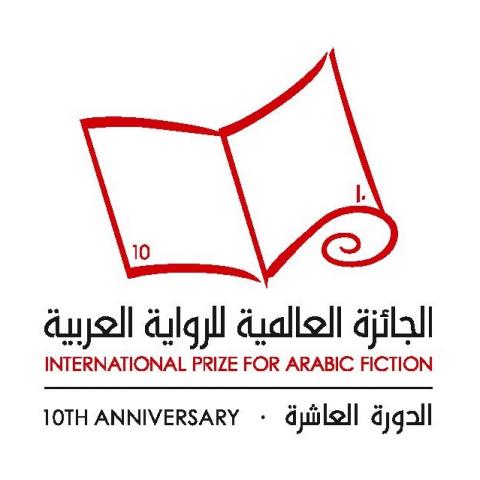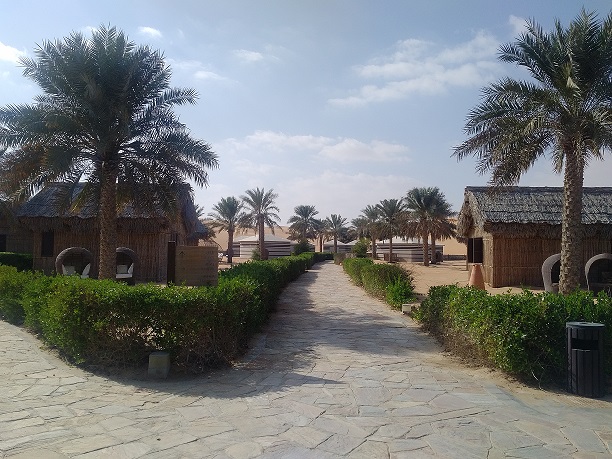International Prize for Arabic Fiction hosts ninth Nadwa in Abu Dhabi, in collaboration with the Abu Dhabi Music & Arts Foundation
12/12/2017

Today, a group of six emerging Arab authors gathered in Abu Dhabi to take part in the annual Nadwa, organised by the International Prize for Arabic Fiction. The week-long workshop brings together writers from across North Africa and the Middle East. The workshop is being held in collaboration with the Abu Dhabi Music & Arts Foundation (ADMAF), as part of the Foundation’s “Riwaq Al Adab wal Kitab” initiative, a platform that is dedicated to nurturing writers and supporting the literary industry in the UAE and Arab World. The workshop will take place in the tranquil Arabian Nights Village nestled in the heart of the Abu Dhabi desert.
The prestigious workshop will be led by two prominent names in Arabic literature, winner of International Prize for Arabic Fiction 2017, Mohammed Hasan Alwan (Saudi Arabia), and Sahar ElMougy (Egypt), who was on the 2017 judging panel.
The participating writers, who range in age from 32 to 40 years old, come from six different countries – Oman, Sudan, UAE, Iraq, Saudi Arabia and Palestine. They have been identified by the organisers as ‘ones to watch’, following an application process.
The workshop involves daily group discussions, as well as the opportunity for one-on-one guidance with the mentors.
The annual workshop in Abu Dhabi has, to date, nurtured a number of writers who have gone on to be shortlisted and even win the annual prize. Previous participants have included Ahmed Saadawi, Mansoura Ez Eldin, Mohammed Hasan Alwan, Mohammed Rabie and Shahla Ujayli. The week follows Nadwa: Oman, IPAF’s first ever writers’ workshop in Oman, which took place in November 2017.
Sahar ElMougy comments: In writing workshops, the text leaves its solitary life with the writer and enjoys a brief time of recreation. It looks at the world afresh, meets eyes unlike those of its author and listens to other voices. It may take from them or not, just as it wishes, but one thing is sure: it will not return unchanged.

The International Prize for Arabic Fiction is the leading international prize for Arabic literature. Sponsored by the Department of Culture and Tourism – Abu Dhabi, and run in association with the Booker Prize Foundation in the UK, the Prize aims to celebrate the very best of contemporary Arabic fiction and encourage wider international readership of Arabic literature through translation.
The Abu Dhabi Music & Arts Foundation (ADMAF) is among the oldest, non-profit cultural organisations in the Arabian Gulf. Founded in 1996, it is dedicated to the advancement of knowledge, of development, of culture and of creativity. Over those last 21 years, ADMAF has pioneered new practices and new works, it has supported Middle Eastern debuts and nurtured the careers of gifted young professionals throughout the Arab world. Today, ADMAF reaches nearly 40,000 children, young people and adults annually through arts-education and community-outreach programmes as well as the Abu Dhabi Festival.
The annual multidisciplinary festival is the largest cultural celebration in the entire region and reaches across the world through co-commissions and the international presentation of innovative Arab creativity. Each year, the Festival Awards honour outstanding individual contributions to arts and culture with previous recipients including Plácido Domingo and Amin Maalouf. In essence, the Abu Dhabi Festival strives to deepen global cross-cultural dialogue whilst inspiring a deeper interest in the cultures of the Arab world.
MENTORS
Sahar ElMougy (Egypt) is a novelist and academic. She has published two short story collections and three novels: Daria (1999, winner - as an unpublished manuscript - of the 1998 Sharjah Girls' Clubs Prize for Women's Creative Writing), Noon (2007, winner of the 2007 Cavafis Award), and The Musk of the Hill (2017). She teaches English Literature and American Studies at the English Department, the Faculty of Arts, Cairo University. Since 2012, she has been running a creative writing workshop ("Seshat", after the Ancient Egyptian goddess of writing) at the Doum Cultural Foundation. She also facilitates psychodrama workshops and directs the "Doum Storytelling" theatre group, which gave three performances from 2014-17. In 2017, she was on the judging panel for the International Prize for Arabic Fiction.
Mohammed Hasan Alwan (Saudi Arabia) is a novelist, born in Riyadh, Saudi Arabia in 1979. He graduated with a doctorate in International Marketing from the University of Carleton, Canada. Alwan has published five novels to date: The Ceiling of Sufficiency (2002), Sophia (2004), The Collar of Purity (2007), The Beaver (2011), and A Small Death (2016), as well as a non-fiction work, Migration: Theories and Key Factors (2014). His work has appeared in translation in Banipal magazine (Blonde Grass and Statistics, translated by Ali Azeriah), in The Guardian (Oil Field, translated by Peter Clark), and in Words Without Borders (Mukhtar translated by William M. Hutchins). In 2009-10, Alwan was chosen as one of the 39 best Arab authors under the age of 40 by the Beirut39 project and his work was published in the Beirut39 anthology. He was also a participant in the first IPAF Nadwa in 2009 and a mentor on the Nadwa in 2016. In 2013, The Beaver was shortlisted for the International Prize for Arabic Fiction and in 2015, its French edition (translated by Stéphanie Dujols) won the Prix de la Littérature Arabe awarded in Paris for the best Arabic novel translated into French for that year. In 2017, his novel A Small Death won the International Prize for Arabic Fiction.
PARTICIPANTS
Mohanned al-Dabi (Sudan) is a writer born in Al-Qadarif, Sudan, in 1985. He has worked as an editor and manager of the cultural supplement of the Sudanese "Al-Tayyar" newspaper. His short story, Shadow, won the 2014 Al-Tayib Saleh International Award for Creative Writing, in the short story category. He has two published novels: Enchanters of the River Bank (2014) and The Violence of the Meteors (2016), and a short story collection, Shadow (2016), as well as a forthcoming novel, The Forgotten Jew, and another short story collection, What Happened Behind the Wall, both to be released at the Riyadh Book Fair in March 2018.
Ashraf Fagih (Saudi Arabia) is a writer born in 1977. He obtained a PhD in Computing from Queen’s University in Canada and is an assistant Professor at the King Fahd University of Petroleum & Minerals. He began writing fiction early and published a science fiction short story collection (The Ghost Hunter) in 1997, aged twenty. He continued writing science fiction until he switched to historical fantasy. His novel The Impaler is in this genre and explores the Eastern origins of the legend of Dracula. He is currently writing a historical novel about the military campaign of the Ottoman ruler of Egypt, Muhammad Ali Pasha, in the Arabian Peninsula.
Huda Hamed (Oman) is a writer born in Rustaq, Oman, in 1981. She obtained a BA in Arabic Literature from Aleppo University, Syria, and worked as a journalist in the cultural section of the "Oman" newspaper before beginning her current job as editor of "Nazwa" cultural magazine. She has published three short story collections and three novels: Things Are Not Where They Should Be (2009), winner of the Sharjah Award for Arab Creativity and Best Omani Publication of 2009; She Who Counts the Stairs, one of six novels written during Najwa Barakat's 2014 writers' workshop and published by Dar al-Adab; and Cinderella of Muscat (2016). Huda Hamed has written some episodes of "Day and Day", the first Omani cartoon series. She was Editor-in-Chief of "More Than Life", the first Omani online magazine reviewing books.
Hawra al-Nadawi (Iraq) is a writer born in Baghdad, Iraq in 1984. She grew up in Copenhagen, Denmark, studied Linguistics and spent eight years in London before moving to Dubai, where she now lives. She writes short stories and articles. Her first novel Under the Copenhagen Sky (2010) reached the longlist of the 2012 International Prize for Arabic Fiction. Her second novel Qismat was published in 2017.
Mariam Nasser (UAE) is a writer born in Al-Ain, the United Arab Emirates, in 1980. She is a regular contributor to the "Emirates Culture" magazine as well as to various Gulf and Arab publications. She has two published short story collections: Amina (2009), which has been translated into German and Urdu, and After the Tale of the Jin (2013).
Mutaz Quteineh (Palestine) is a Palestinian writer with Jordanian nationality, born in Jerusalem in 1980. He lived most of his life in Saudi Arabia before moving to the UAE five years ago, where he works in online technology and services and journalism. He did not finish his Law degree, but has recently started an MBA at Edinburgh Napier University. Since 2001, he has published four poetry collections and one prose work. For the last two years he has been working on another prose work as well as a poetry collection due to be released at the beginning of 2018.
